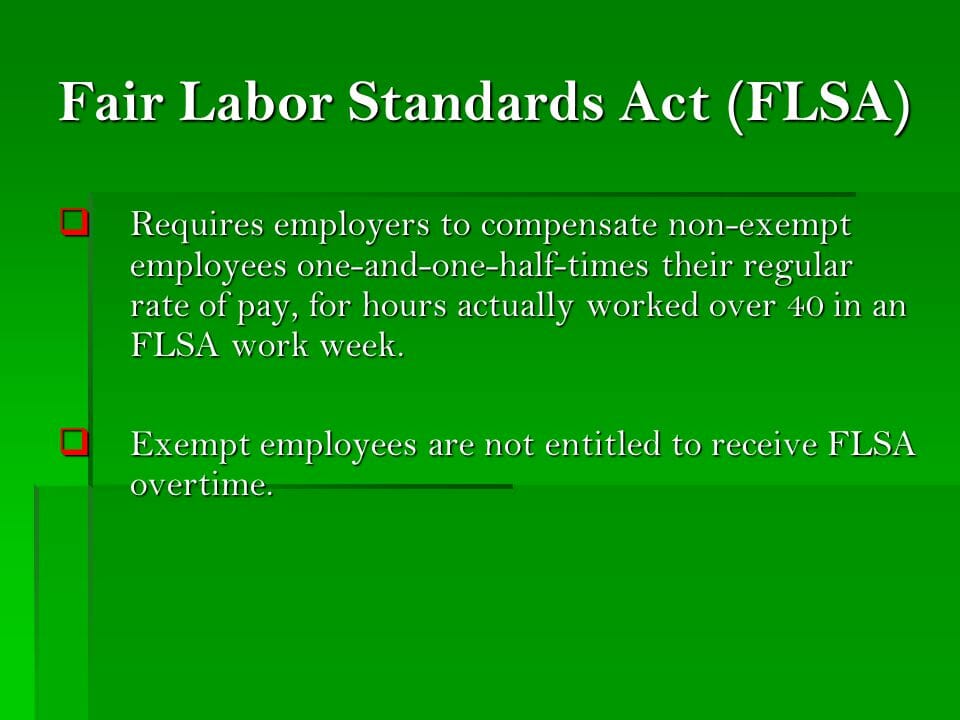When we interview for a new job, we don’t usually get to choose between being paid hourly vs. salary. How you’ll be paid is pre-determined by the employer. You can choose to accept the job or not, but you rarely get to decide how you’ll be compensated.
But you may face the choice of earning a salary vs. an hourly wage when offered a promotion within your company. Many people automatically jump at the chance to leave behind an hourly wage for a salaried position without giving it much thought. A salaried position often comes with a job title, perhaps healthcare and a retirement plan. A salaried position is seen as more prestigious than an hourly position.
But a fancy job title doesn’t always translate into more money even if it does come with additional job duties and hours of work. Salaried workers may be giving up things like overtime pay and having any semblance of work-life balance. Hourly pay may not be looked upon as prestigious, but it does have some advantages.
Before you choose between hourly vs. salary, understand the pros and cons of both and the federal and state laws that govern how both types of employees are paid. We’ll lay it all out for you so you can make the best decision for your life and your paycheck.
What the Laws Decree
What exactly does it mean to be hourly or salary? The Fair Labor Standards Act (FLSA) designates most employees as exempt or non-exempt workers.
Exempt employees are not entitled to paid overtime for working more than 40 hours per week. Exempt employees fall into three broad categories:
- Executive
- Professional
- Administrative
These employees have exempt status so long as they are paid a salary and not an hourly wage, earn a minimum of $455 per week, and are paid a salary for any week they work.

Non-exempt workers are paid for the number of hours of work they perform each week and are entitled to overtime pay if they work over 40 hours per week, not per pay period. If you’re a non-exempt hourly employee, you are paid time and a half. Your hourly rate multiplied by 1.5 for every hour you work over forty in a week. Sometimes employees are paid double time for overtime hours. The hourly rate multiplied by 2 for holidays and weekends. Even at minimum wage, double time can add up.
Things to Consider
There are a lot of considerations to make before choosing between being paid on a salary basis or an hourly wage. It doesn’t all come down to the amount of your paycheck. By asking these questions, you’ll get the answers you need to decide your path.
How Many Hours?
This is the most critical question to ask when you’re considering hourly vs. salary. Some unscrupulous employers will dangle the offer of a salaried position to hourly employees, counting on the employee believing a salaried position is beneficial for all those perks we mentioned above.
But it might be a trap. It might be the same job for the same pay only now with additional duties and hours that aren’t compensated. Some employers will forbid hourly workers to work more than forty hours per week. They expect exempt employees to pick up the slack, essentially uncompensated for the additional work and hours.
People will work eight hours a day for pay, 10 hours a day for a good boss, and 24 hours a day for a good cause.
Tweet ThisBefore giving an answer, ask what the hours will be like and what additional job duties will be expected of you. Ideally, get this in writing.
Are There Benefits?
Some hourly employees will have access to benefits, but you’re more likely to have them if you’re salaried. Currently, if you’re employer has more than fifty full-time employees, and you work 30 or more hours per week or 130 a month, you are eligible for employer-sponsored health insurance.
Given how stingy most companies with time off since, in America the only people with any legally mandated, paid vacation are Congress, paid vacation is a big “perk” to consider when choosing between jobs. A salaried job is also more likely to include paid time off and paid sick leave than hourly.

Salaried employees may also be eligible for a 401k which is a great way to invest for retirement. Of course, anyone can open an IRA to save for retirement if they’re not eligible for a 401k, but if the employer offers to match, hourly employees lose out on what is literally free money.
Not every financial decision comes down to the number of dollars in your paycheck. Health insurance is expensive when you’re paying out of your own pocket. One of the biggest problems for hourly employees who live paycheck to paycheck is the inability to take a day off whether due to illness, a medical appointment, or childcare issues. Consider these things when making your decision, not just the actual amount you’ll be earning.
Where Are You In Life?
Hourly might be better if you’re young and just starting your career. You have more time to work and probably need the extra income that time and a half will offer. When you have a family, working long hours and weekends will be less appealing.
Scheduling
Salaried employees tend to have more regular schedules than hourly employees. If you’ve ever had an hourly job where you didn’t know your schedule week to week, you know what a drawback this is. Trying to schedule things like doctor’s appointments, child care, and going back to school while you work is almost impossible without a consistent schedule.
On-call scheduling can make workers responsible for showing up at a moment’s notice or leave them without a shift just as quickly. “Such practices take a toll on workers and prevent employees from securing childcare or pursuing other job and educational opportunities,”
However, if you don’t want to come in (or wake up) even one minute before your start time begins and want to bolt the second the clock strikes the end of your shift, hourly might be more appealing. Most employers will do what they have to in order to avoid paying overtime, and that means they won’t ask you to work extra hours, they’ll ask a salaried employee to do it.
Flexibility
If you want some flexibility at your job, salary is probably the way to go. Need to leave in the middle of the day for a doctor’s appointment? No problem. Want to work from home a day or two a week? Go ahead. Hourly employees are less likely to be afforded that flexibility.
Hourly workers will have more restrictions on their time, they may have to clock in and out at the start and end of each shift as well as for breaks.
Understandably certainly but having to clock out when you need to do a ten-minute errand or grab a cup a coffee, or go to the bathroom can start to feel like being micro-managed. It’s also illegal not to pay you for those kinds of breaks. A break 5-20 minutes long has to be paid, but some employers don’t know that or do know but hope that you don’t.
Feeling More Valued
A salaried position can make you feel more valuable to the company. Whether it’s true or not, many people associate hourly work with expendable employees because many hourly jobs are still low paid and low skill.
When I first moved to New York, I worked for Sotheby’s. Rather I worked at Sotheby’s. I did all of the stuff other employees did, and I was hired by Sotheby’s but was technically employed through a contracting company. It always made me feel second tier.
Being salaried may also entitle you to things like bonuses and annual raises that an hourly employee won’t be eligible for. A salaried position can also put you on a different “track” with more opportunities for mentoring and advancement.
Lunch Breaks
This one might seem silly, but it’s not! Hear me out. Only one in five employees take a lunch break. That’s bad, for you and your company. You’re more productive when you’ve had a break. Ever try to concentrate when you’re hungry or when you feel sick from gobbling down your food too quickly? Not great for getting through the second half of the day.

Having lunch with co-workers is a good way to network and bounce ideas off each other. Sometimes a problem you’ve spent too long going over in your head has an obvious solution once you’ve talked it out a bit.
It’s better for your health too. You eat too much when you’re distracted while eating and the kind of things you can easily eat while you work, a candy bar, a bag of chips, are worse for you than something you need a plate and utensils to eat.
As an hourly employee, you will have a more set lunch break. You might even be required to clock out for it, so that whole time is your own.
Work Life Separation
People are reachable all hours of the day and night and even while on vacation thanks to smartphones and e-mail. I dated someone who literally never left the house without his Blackberry. And if he somehow did forget it, we had to go back for it. If he got a notification, he did not ignore it. Because he couldn’t. Thing was worse than an ankle monitor.
A salaried employee is more likely to be expected to be in this kind of constant contact with the office than an hourly one. While most of us don’t mind answering the odd question from work now and then, it can get exhausting and intrusive.
This is our guide to budgeting simply and effectively. We walk you through exactly how to use Mint, what your budget should be, and how to monitor your spending automatically.
A Personal Choice
There isn’t a clear winner here that works in every case. Remember, money shouldn’t be the only thing you base any decision on. Even if one offer seems like more money, that’s not always the case when you start crunching the numbers.
A new job should pay you more and provide more benefits. It will likely include more work too and there’s nothing wrong with that. Unless you’re not being fairly compensated. In that case, you can tell your manager to take that job and shove it. But say it nicer than that!
Show Notes
Yards India Pale Ale: A fruity, aromatic IPA.
LMM Tool Box: Everything you need to manage your money.
LMM Community: Join the money revolution.




